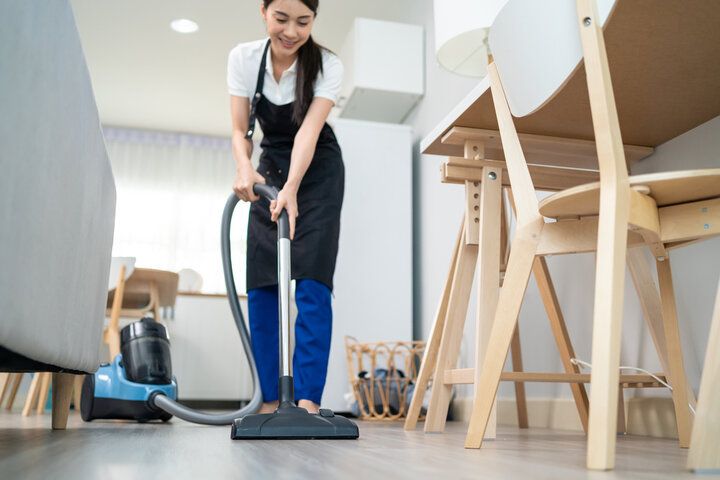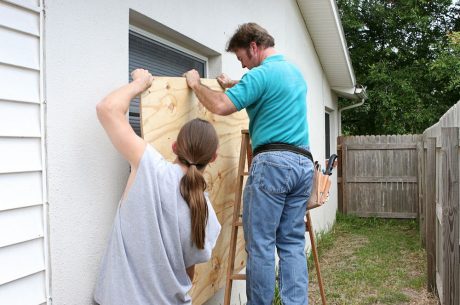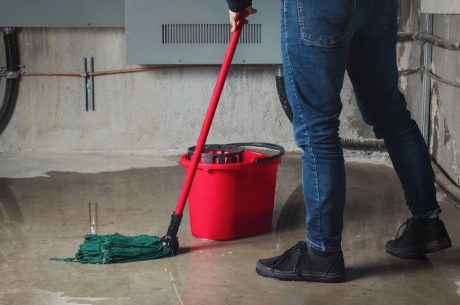Table of Contents
A dirty home isn’t just unpleasant—it can seriously affect your health. From allergies and infections to anxiety and fatigue, poor indoor hygiene contributes to a wide range of health risks for both people and pets. This guide explores how an unclean home impacts your well-being and offers practical cleaning and prevention tips tailored for North Metro Atlanta, GA residents.
The Connection Between Cleanliness and Health
A tidy home isn’t just about appearance—it’s about protection. When clutter, dust, and grime build up, they create ideal conditions for bacteria, viruses, and mold to thrive. Over time, these contaminants can lead to chronic illness, fatigue, or even mental distress.
In North Metro Atlanta, where humidity levels and pollen counts are often high, maintaining a clean environment becomes even more critical. Moisture and warmth can amplify the spread of allergens and microorganisms, especially in areas like Alpharetta, Roswell, and Cumming.
Let’s take a closer look at the most common health risks linked to a dirty home—and how to prevent them.

Regular cleanings can deter dust mites, pollen, and dander from settling into your furniture.
1. Respiratory Problems: Breathing in Dust and Mold
One of the most immediate health risks of poor indoor hygiene is respiratory distress. Dust mites, mold spores, and pet dander can easily accumulate in carpets, bedding, and air ducts. When inhaled, they trigger symptoms such as coughing, wheezing, and sinus irritation.
For residents with asthma or allergies, exposure to these irritants can worsen flare-ups or cause severe asthma attacks. According to the Centers for Disease Control and Prevention, prolonged exposure to indoor allergens is one of the leading causes of respiratory disease in the U.S.
If your home smells musty or you frequently wake up congested, it may be time for a deep clean or professional inspection to rule out hidden mold.
2. Skin Infections: Hidden Germs on Surfaces
Your skin is your body’s first line of defense, but in a dirty home, that defense is constantly under attack. Bacteria thrive in moist areas like bathrooms and kitchens, while fungi can grow on unwashed towels, showers, or mattresses.
Studies show that unclean environments can increase the risk of skin infections and irritations—such as dermatitis, athlete’s foot, or bacterial rashes—by up to six times. Even minor cuts or scrapes can become infected when exposed to contaminated surfaces.
Regularly disinfecting high-touch areas like door handles, faucets, and countertops helps reduce this risk. In North Metro Atlanta’s humid climate, keeping bathrooms dry and well-ventilated is especially important.
3. Gastrointestinal Issues: When Germs Spread to Food
Poor kitchen hygiene is another major contributor to household health risks. Dirty counters, expired food, and unwashed utensils can harbor bacteria like Salmonella, E. coli, and Listeria—all of which cause foodborne illnesses.
A dirty home with improper food storage or infrequent cleaning of refrigerators and sinks creates a perfect breeding ground for these pathogens. Symptoms of contamination include nausea, vomiting, diarrhea, and stomach cramps.
To prevent foodborne illnesses:
- Wash hands before handling food.
- Clean kitchen surfaces daily.
- Store raw meat separately and refrigerate perishables promptly.
4. Mental Health Effects: Clutter and Anxiety
A cluttered, dirty home doesn’t just impact physical health—it can weigh heavily on your mental well-being. Research from the National Institute of Mental Health (NIMH) links cluttered environments to increased cortisol (stress hormone) levels, decreased focus, and poor sleep quality.
In North Metro Atlanta, where many residents juggle long commutes and busy lifestyles, household clutter can amplify stress and fatigue. Keeping your space clean can help create a sense of order and calm, improving both mood and productivity.
Even dedicating 15 minutes a day to tidying up can make a measurable difference in how relaxed and energized you feel at home.
Common Culprits Behind Household Health Risks
Understanding where most health hazards originate is the first step toward prevention. Below are the main culprits found in dirty homes—and how they can affect you.
Pets and Dander
While pets bring joy and companionship, they also introduce fur, dirt, and allergens into your living space. Pet dander can trigger allergic reactions, respiratory irritation, and even worsen asthma. Vacuuming carpets and furniture frequently and bathing pets regularly can help minimize buildup.
Carpets and Upholstery
Carpets trap dust, bacteria, and even mold spores deep within their fibers. Without regular cleaning, these contaminants recirculate into the air every time someone walks across them. Schedule professional carpet cleaning at least once or twice a year to maintain indoor air quality.
Hidden Mold
Mold doesn’t just grow in neglected homes—it thrives anywhere moisture lingers. Common spots include basements, under sinks, or around air vents. Mold exposure is linked to headaches, coughing, fatigue, and eye irritation. If you suspect hidden mold, contact a professional remediation service like PuroClean North Metro Atlanta immediately.
Mattresses and Bedding
Mattresses and bedding often harbor dust mites, bacteria, and allergens that can trigger coughing, sneezing, or skin irritation. Over time, sweat, pet dander, and dead skin cells build up in fabrics—especially in humid North Metro Atlanta homes. To reduce these health risks, wash sheets and pillowcases weekly in hot water, and clean mattress covers and pillow inserts regularly. Air out and vacuum your mattress every few weeks to keep it fresh and free of hidden irritants.
Air Ducts and Filters
Over time, dust, pet hair, and pollen accumulate in air ducts, contaminating the air that circulates throughout your home. Replacing HVAC filters every one to three months and scheduling duct cleanings every few years can dramatically reduce airborne allergens.
Comparing Clean vs. Dirty Home Health Impact
| Category | Clean Home Benefits | Dirty Home Health Risks |
|---|---|---|
| Air Quality | Fresh, allergen-free air | Triggers asthma, allergies |
| Mental Health | Reduces stress, improves mood | Increases anxiety, fatigue |
| Surfaces | Safe, germ-free environment | Higher bacteria and virus spread |
| Sleep Quality | Better rest and relaxation | Interrupted sleep, sinus irritation |
Simple Habits to Reduce Health Risks at Home
You don’t need to clean your entire home daily—but consistent, small actions can drastically improve hygiene and comfort.
- Declutter Weekly: Reduces dust and helps spot hidden mold or leaks early.
- Wipe Down Surfaces Daily: Use disinfectants on high-touch areas like doorknobs, light switches, and countertops.
- Vacuum and Sweep Floors Often: Especially if you have pets or carpets.
- Control Humidity: Use a dehumidifier in damp areas to prevent mold growth.
- Change Bedding and Filters Regularly: Keeps allergens at bay and promotes cleaner air.
When to Call a Professional Cleaning or Remediation Service
Sometimes, household cleaning isn’t enough. If you notice recurring mold, persistent odors, or unexplained allergic reactions, it may be time for professional help.
Companies like PuroClean North Metro Atlanta specialize in deep cleaning and biohazard or mold remediation services that target hidden contaminants, ensuring your home is safe and healthy. With Georgia’s high humidity, professional inspections can also help detect early signs of moisture damage before it leads to larger health issues.
Call PuroClean North Metro Atlanta at (770) 720-2320 for expert cleaning, mold removal, and restoration services in Roswell, Alpharetta, Cumming, and surrounding areas.
Frequently Asked Questions (FAQ)
1. What are the most common health risks of a dirty home?
Respiratory issues, skin infections, foodborne illness, and mental stress are the top health problems caused by an unclean home.
2. Can a dirty home cause long-term illness?
Yes. Chronic exposure to mold, dust, and bacteria can contribute to long-term respiratory and skin conditions.
3. How can I reduce health risks without professional help?
Regular cleaning, proper ventilation, and humidity control are the most effective preventive measures.
4. Are air purifiers helpful for allergy prevention?
Absolutely. HEPA air purifiers remove airborne allergens like dust, pollen, and pet dander, improving indoor air quality.
5. When should I call a professional cleaner or remediation service?
If you notice recurring mold, persistent odors, or unexplained health symptoms, professional cleaning is strongly recommended.
Key Takeaways
- A dirty home can cause multiple health risks, from respiratory and skin problems to stress and poor air quality.
- North Metro Atlanta’s humid climate increases the chance of mold and allergen buildup.
- Consistent cleaning, air duct maintenance, and professional mold remediation help prevent illness.
- Keeping your home clean protects your health, your family, and your peace of mind.
Explore more:



